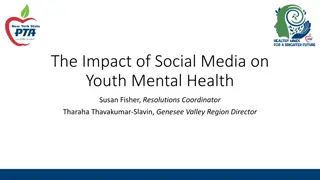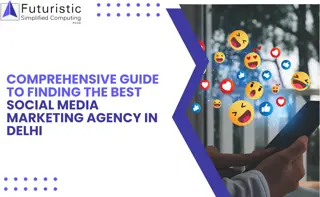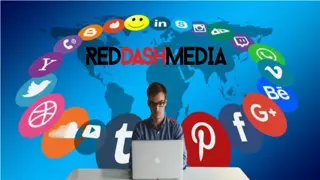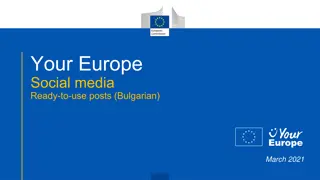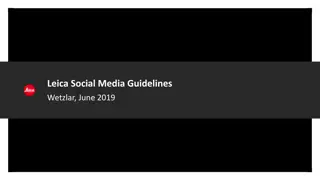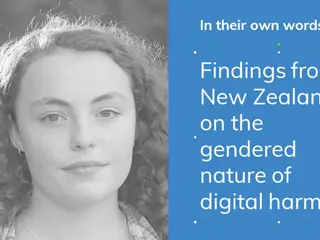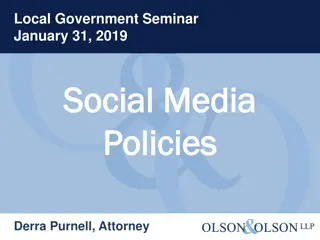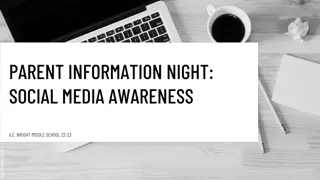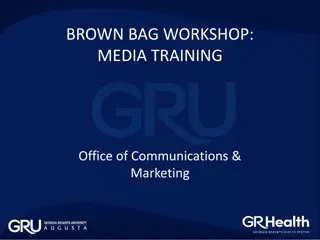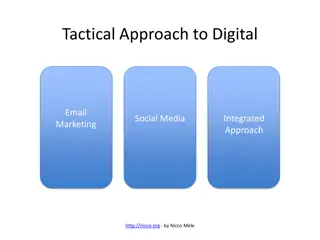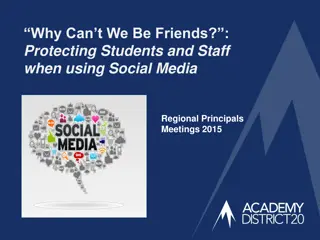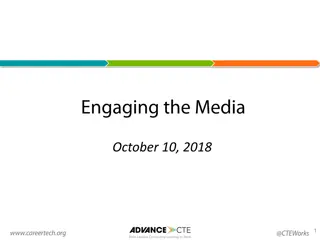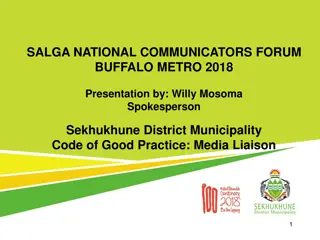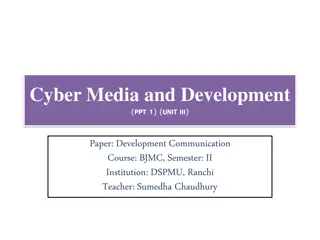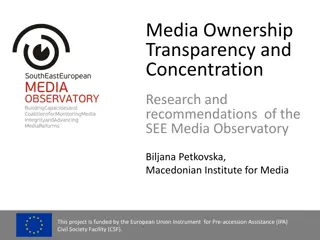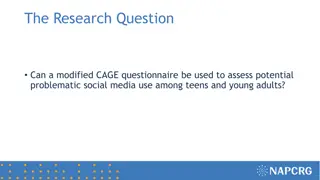Online Safety and Social Media Guidelines for Students
Langford Middle School Classroom Guidance session in February 2020 focused on Internet safety and responsible use of Social Media. Students were encouraged to watch a video and engage in discussions on being safe online. Key topics included online interactions, identifying predators, and protecting personal information on the internet.
Download Presentation

Please find below an Image/Link to download the presentation.
The content on the website is provided AS IS for your information and personal use only. It may not be sold, licensed, or shared on other websites without obtaining consent from the author. Download presentation by click this link. If you encounter any issues during the download, it is possible that the publisher has removed the file from their server.
E N D
Presentation Transcript
Langford MS Classroom Guidance February 2020 Topic: Internet Safety and Social Media L.O.: Identify safe internet skills & responsible usage of S.M. B-SS 5. Demonstrate ethical decision making and social responsibility
Attention Students !!! Let s see what you know about Internet Safety and being cool on Social Media Step One: Watch the video link Step Two: Respond to the questions Step Three: Be a True Lion - Raise your hand when voicing your thoughts/opinions - Be a good listener - Respect the opinion of others ( even when you disagree )
Video #1: https://www.youtube.com/watch?v=HAZU49hHMLE
Video #1 - Questions What advice did Molly give on becoming popular, or making new friends? Answer: Be friendlier and nicer to REAL people an
Question #2Did Molly know who she was communicating with while she was on Facebook? No! Why is it dangerous for kids (or anybody) to communicate online with people you don t know?
Question #3: In the video, what is the general rule of thumb or self-check to ask yourself before posting online? Would I be ok with my grandmother seeing this post?
Question #4: What is an online predator ? Online predator an adult posing as a teen or child in effort to exploit, or take advantage of, a teen, child, or another person
Question #5: Name two strategies identified in the video to protect yourself against online predators? One: Do not communicate with ANYONE on the computer if you do not know their TRUE identity. Two: Never give out Personal Identification information Online/on the computer (your address your phone # - passwords birth dates etc.)
Question #6: What is one tool identified in the video that can protect you from harmful/inappropriate web-sites? A Filter on your computer!!
Question #7: Can you reflect on, or think back, to a time when you may have posted something that created a problem for you, or that you regretted after the post was sent? Please describe the event and the consequences. What did you learn from the event?
VIDEO #2: https://www.youtube.com/watch?v=6TUMHplBveo
Video #2 - Questions Question #1: What is a digital footprint ? Your digital footprint is all the stuff you leave behind as you use the Internet. Comments on social media, Skype calls, app use and email records- it's part of your online history and can potentially be seen by other people, or tracked in a database.
Question #2: How can a digital footprint tell others about you? Social Media sites and all of your online activity leaves an electronic path of your online activity. What you post and where you go online tells others about who you are
Question #3: Can your digital footprint impact or effect your ability to get a job, get accepted to college, or join the armed forces (military)? YES!!! All of the above will check your social media to learn about who you are and what you are about.
Question #4: What do passwords and toothbrushes have in common? Don t share them and change them often
Extra Credit Question (Three sentences or more!) Some social media sites like Facebook have an age limit requirement (17 or older?) Do you agree or disagree with this policy? Justify your response

 undefined
undefined






